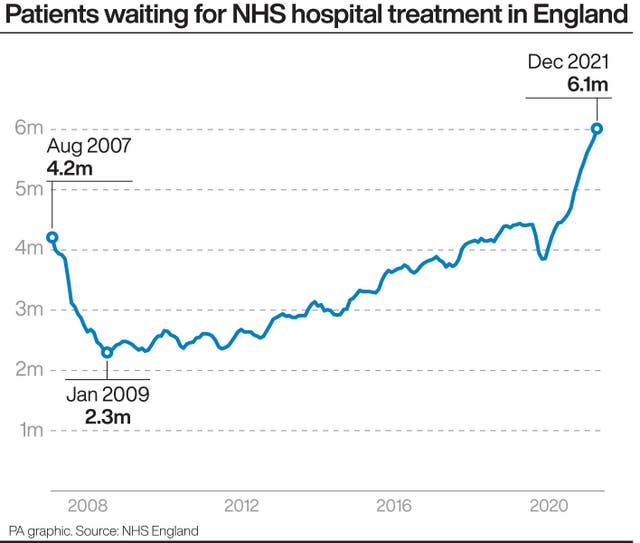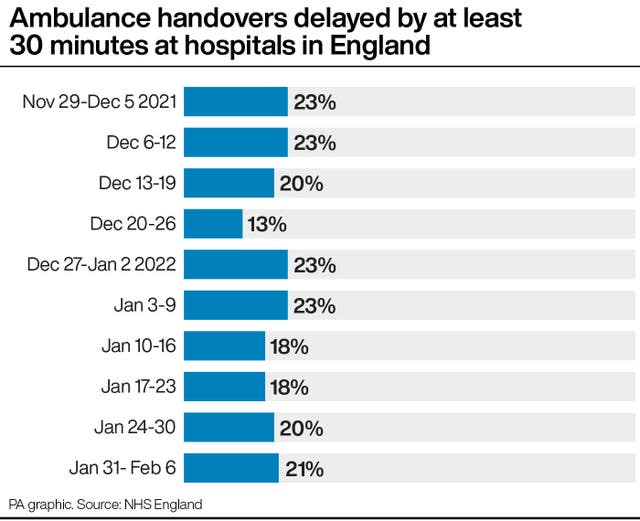
Ambulance response times in England improved last month but are still some way off target levels, new figures show.
The average response time in January for ambulances dealing with the most urgent incidents – defined as calls from people with life-threatening illnesses or injuries – was eight minutes and 31 seconds.
This is down from nine minutes and 13 seconds in December, though above the target of seven minutes.
Ambulances also took an average of 38 minutes and four seconds to respond to emergency calls, such as burns, epilepsy and strokes.
This is an improvement from 53 minutes and 21 seconds in December, but some way above the target time of 18 minutes.

NHS England, which published the figures, said staff had dealt with the highest ever number of life-threatening ambulance call-outs and 111 calls last month.
There were also “sky-high staff absences” at hospital trusts in January, with an average of 77,175 employees absent each day through sickness or self-isolation, up from 66,476 in December.
Juliet Bouverie, chief executive of the Stroke Association, said the figures represented a “crisis situation”, highlighting that one in 10 people with an emergency condition last month – including stroke patients – waited nearly an hour and a half for an ambulance.
“We recognise and applaud the hard work of ambulance call handlers, paramedics and stroke clinicians. They’ve made great progress in reducing time to emergency treatment when a stroke patient arrives at hospital,” she said.
“But these gains are being squandered by systemic challenges that mean ambulances are not getting patients to hospital in the window that allows for life-saving and life-changing treatment.
“Long ambulance delays are a symptom of a system which is failing. This is a problem across the whole health and social care system, which fails to get people in, through and out of hospital.”

Response times for urgent calls – such as late stages of labour, non-severe burns and diabetes – averaged one hour, 56 minutes and 52 seconds last month.
This is down from two hours, 51 minutes and eight seconds in December.
Separate figures published on Thursday showed that around one in five patients arriving at hospitals in England by ambulance last week waited at least 30 minutes to be handed over to A&E departments.
Some 18,193 delays of half an hour or more were recorded across all hospital trusts in the seven days to February 6, according to NHS England.
This was 21% of all arrivals by ambulance, up slightly from 20% the previous week and the highest level since early January.
A handover delay does not always mean a patient has waited in an ambulance. They may have been moved into an A&E department, but there were no staff available to complete the handover.


Comments: Our rules
We want our comments to be a lively and valuable part of our community - a place where readers can debate and engage with the most important local issues. The ability to comment on our stories is a privilege, not a right, however, and that privilege may be withdrawn if it is abused or misused.
Please report any comments that break our rules.
Read the rules hereLast Updated:
Report this comment Cancel